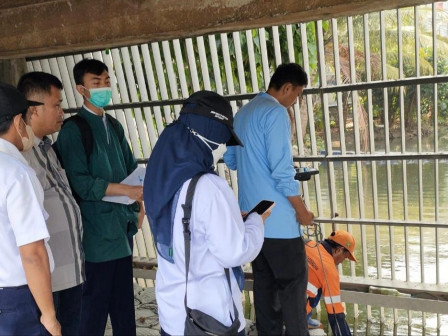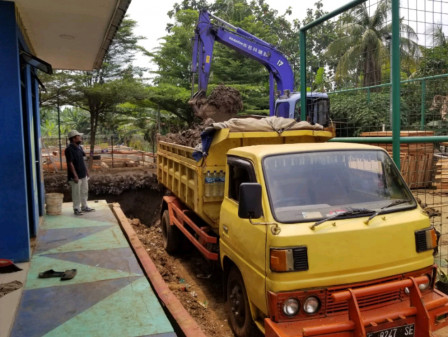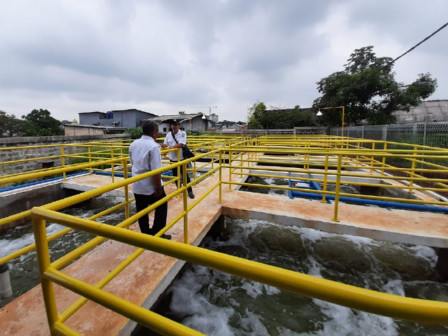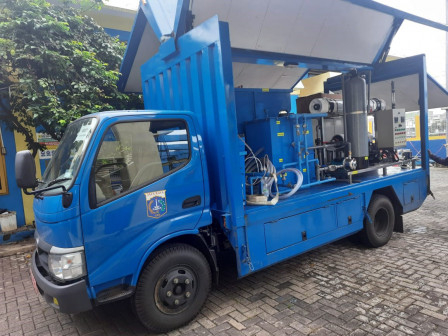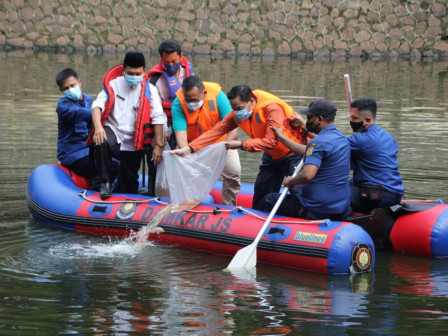N. Jakarta KPKP Sub-agency Conducts Laboratory Test of Sagoro Reservoir Water
Reported by Anita Karyati | Translated by Nugroho Adibrata
The results are still waiting for the next three days
The North Jakarta Maritime, Agriculture and Food Security Sub-agency (KPKP) has taken water samples at Sagoro Reservoir, Jalan Boulevard Barat Raya, RT 02/09, Kelapa Gading Barat Urban Village, Kelapa Gading Sub-district for laboratory testing.
This sampling is conducted with the Environmental Health Laboratory, Technical Services Unit for the Production, Inspection and Certification Center for Fishery Products (UPT PPISHP) belonging to Jakarta KPKP Agency.
LH Agency Takes Sample of Jakarta Bay Seawater to Confirm Paracetamol PollutionNorth Jakarta KPKP Sub-agency Head, Unang Rustanto said the checks were carried out to follow up on local community reports regarding the dead fish at the location. It was done by taking water samples in several reservoir areas.
"We're still investigating by taking water and fish samples for laboratory tests. The results are still waiting for the next three days," he expressed, Thursday (5/23).
He explained the temporary suspicion that the fish died was due to rising temperatures (extreme weather changes) and waste because the temporary results of physical tests on water acidity (pH) levels were within normal limits.
"Physical tests with a Water Quality Checker are done by dipping the test equipment at several location points," he explained.
He furthered the physical test parameters including temperature, turbidity, conductivity (electrical conductivity test), measurement of total dissolved solids (TDS), and salinity.
"Hopefully, the results are good and there is nothing suspicious. Currently, dead fish are still being found," he added.
One of the residents from Kelapa Gading Barat, Ridwan (33) admitted he often saw dead fish in the reservoir waters.
He appreciated the government's quick action to deal with this problem considering the reservoir is often used as a fishing spot by locals.
"I saw more than three baskets of dead fish. Hopefully, there is nothing that endangers humans and the habitat in the Sagoro Reservoir," he hoped.

